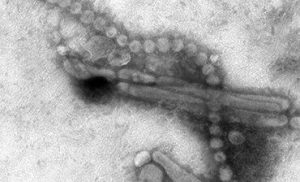From October 6–8, 2025, ESFLU Working Group 1 hosted a Training School on Antigenic Cartography at the Friedrich-Loeffler-Institut (FLI) on the island of Riems. The event brought together 18 participants from 10 different nationalities, representing a diverse and engaged group of researchers and professionals working in virology, diagnostics, and data analysis.
The training aimed to provide participants with both theoretical foundations and practical experience in antigenic cartography — a method used to visualize and interpret antigen–antibody interactions based on serological data. The course was designed to be accessible to participants with varying levels of coding experience. While prior coding skills were advantageous, they were not required, and all practical sessions were conducted in R, with example code and datasets shared by the instructors.
The three-day programme combined lectures, interactive sessions, and hands-on exercises, fostering active engagement and collaboration among participants.


Pictures 1-2. Group pictures during the guided tour of the Friedrich-Loeffler-Institute facilities.
The training opened with a welcome session and an overview of the programme, followed by a presentation on Swine influenza viruses in Europe, including critical insights into antigenic cartography, by Prof. Dr. Timm Harder (FLI). Dr. Sasan Fereidouni (University of Veterinary Medicine Vienna) introduced the immunological principles underlying antigen–antibody interactions, and participants enjoyed a guided tour of the FLI facilities. In the afternoon, Dr. Norikazu Isoda (Hokkaido University) discussed the interpretation of antigenic maps, and the day concluded with practical support for software installation.
The second day, led by Dr. Antonia Netzl and Dr. Sarah James (University of Cambridge), focused on the theory and application of antigenic cartography. Through a series of interactive R-based sessions, participants learned to construct and interpret antigenic maps using the Racmacs Viewer, assess map diagnostics, evaluate dimensionality and stability, and create antibody landscapes to visualize complex immune histories.
The final day was dedicated to applying newly acquired skills. Some participants worked with their own datasets, while others used example data provided by the instructors, receiving individual guidance and troubleshooting support. The closing optional session addressed common data issues and strategies to recognize and resolve them in antigenic map construction.
The training combined theoretical input with intensive hands-on learning in R, offering participants practical skills directly applicable to their research. Feedback indicated strong appreciation for the interactive format, the expert guidance of the instructors, and the opportunity to connect with peers from across Europe and beyond. One noted limitation was the absence of a wet-lab component on hemagglutination inhibition testing, which could not be included due to time constraints. Future editions of the training might consider integrating a short wet-lab demonstration to complement the computational sessions.
The organizers thank all speakers and trainers — in particular Antonia Netzl and Sarah James — for their commitment and expertise, as well as the Friedrich-Loeffler-Institut – with special
thanks to Ines Jakobi – for hosting the event and providing an inspiring environment for scientific exchange.


Pictures 3-4. Training in progress.

